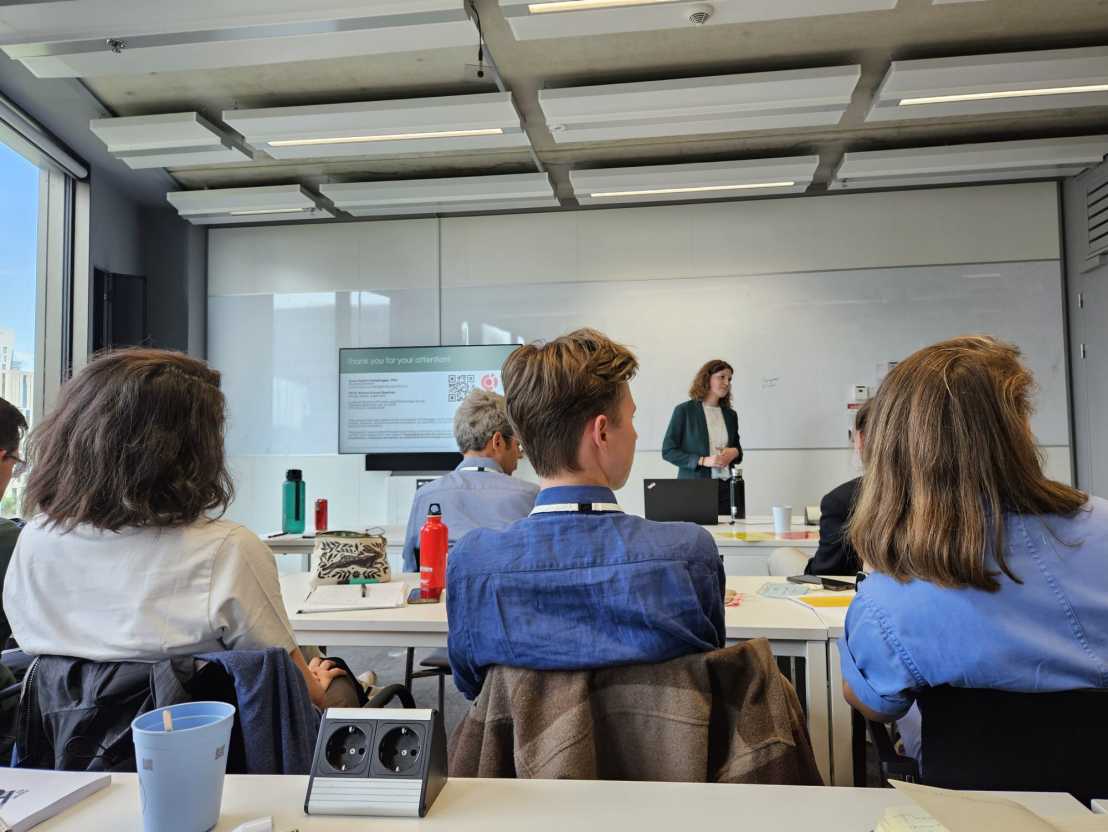CSTS at EASST 2024 in Amsterdam: exploring the world of STS
In July, Bianca (Group leader) and Sophie (PhD student) made their way to Amsterdam to represent the CSTS group at the biannual meeting of European STS scholars – the EASST 2024. This year, this meeting was coupled with the annual conference of the 4S community, the Society for Social Studies of Science. No wonder the conference was a blast! Read more in this blog.

With 3300 participants, external page EASST 2024 fulfilled every STS scholar’s needs. With hundreds of panels to choose from, attendees were spoiled for choice. It felt like every scholar one ever read a publication from was there, including the famous ones (they are real human beings!).
Both Bianca and Sophie started the week off with their own presentations. On Tuesday morning, Bianca held a talk on university alliances as important “in-between spaces” fostering transdisciplinary research (TDR), together with colleague Jack Spaapen (external page ScienceWorks The Hague). They explored how recent increasing efforts to build permanent alliances between scientific and societal partners would impact TDR’s potential and the barriers these boundary-crossing, collaborative modes of research face. In the afternoon, Sophie presented the results of the comprehensive literature review done by the INTERSECTIONS team. Her talk focused on the implications of looking at inter- and transdisciplinary research and evaluation from the perspective of values, suggesting that this concept is beneficial in addressing some of the barriers research evaluation creates for interdisciplinary and transdisciplinary research. Her presentation was embedded in the wider context of her research, which focuses on the evaluation of interdisciplinary and transdisciplinary research projects in the Swiss funding context. Titled “Underlying values in collaborative research practices and their evaluation - an empirical inquiry into resulting connections and disconnections”, the thesis is characterised by qualitative, empirical investigations into the funding and evaluation landscape in Switzerland, and how interdisciplinary and transdisciplinary projects are embedded in it. Building on the literature review Anne-Sophie presented at EASST, she currently conducts participant observation and numerous interviews with members of evaluation and monitoring panels, funding officers and researchers in large, Swiss research consortia.

At EASST, the scientific programme of the week then ended with a panel that Bianca convened with her colleagues Isabel Fletcher (University of Edinburgh), Ulrike Kuchner (University of Nottingham), and Maria Goñi (Universidad de la República Uruguay) in the very last session of the conference. They aimed to explore the intersection of STS and the inter- and transdisciplinary scholarship in a creative way, inviting scholars to report on their scientific perspectives but also their personal experiences in that area. The session included a collaborative mapping process, in which the conveners together with the audience and the presenters tried to make sense of the intersecting skills, infrastructures, emotions, epistemologies, methodologies, … between STS and TDR. It was evident that the two scholarships had much potential to enrich one another, but also grappled with questions of identity, belonging and overcoming boundaries.
Of course, the EASST organisers made sure to offer ample opportunity for relaxation and social bonding. On Tuesday evening, the Swiss STS community met up for a drink, the perfect moment to connect with old and new friends. On Thursday, we were escorted to the most unique forest festival, organised fully and only for the conference attendees. Not only did it provide us with great foods and drinks in a beautiful location in the Amsterdam Forest along the water, but it also shined with a line-up of live music, a nomadic impro-theatre group, a silent disco (who knew STS scholars could let that loose!) and a live podcast-conversation on transdisciplinary collaborations.
As it is often the case with such large conferences, it was an intense week that made our brains smoke and drained our social batteries, but this was worth it! Kudos to the organisers for a good job in handling such a big event, thank you to all the colleagues who contributed to the research that was presented at this conference by the CSTS team, and ‘see you soon’ to all the friends overseas we are grateful to meet on such occasions. Until next time!
Anne-Sophie Schaltegger
PhD Student @ CSTS group